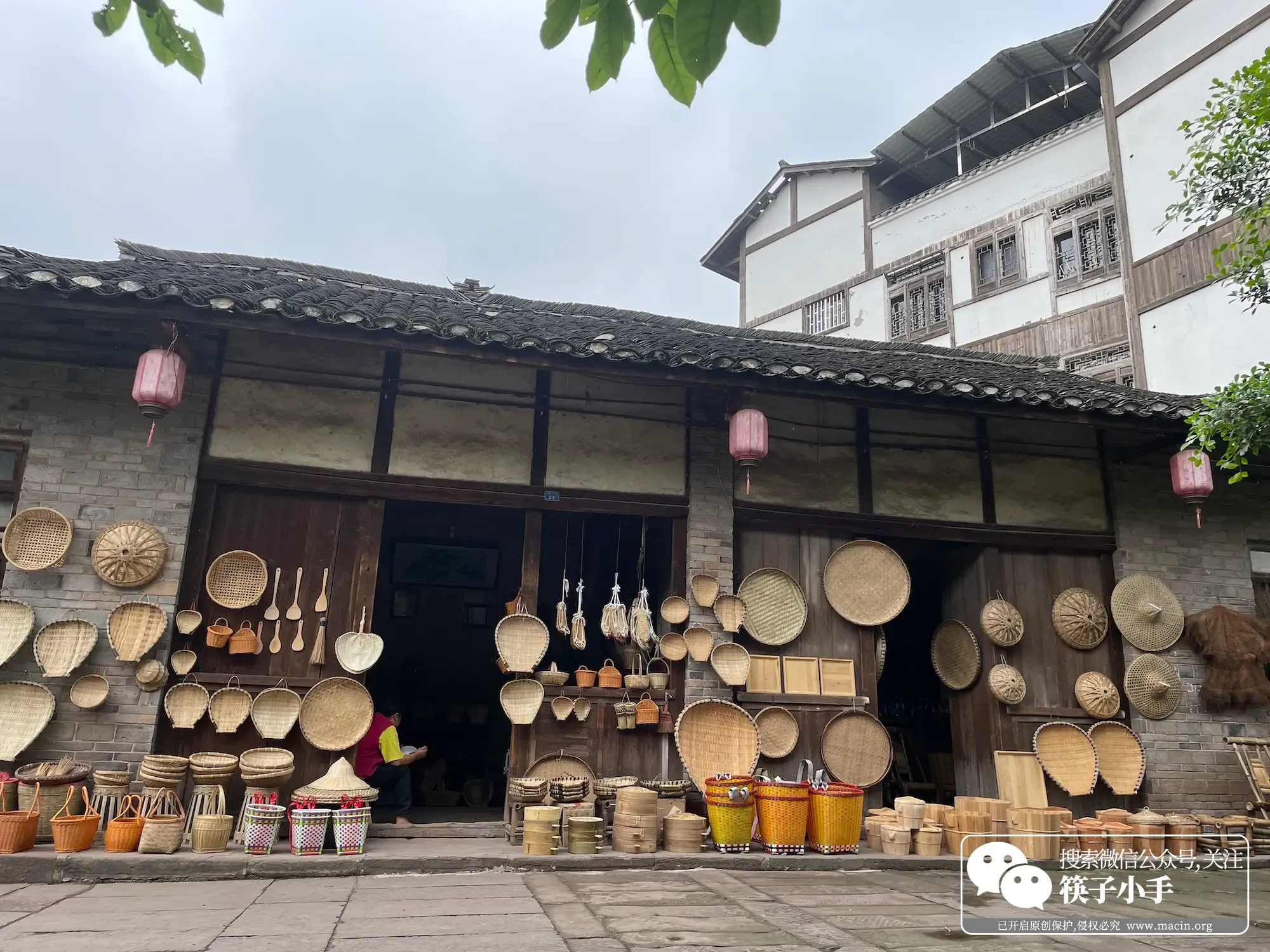Original link: https://macin.org/2023/06/05/yao-ba-gu-zhen/
In the early summer season, the rain moistens the earth, sometimes it rains cats and dogs, and sometimes it ushers in sunny weather. In this season when there is no sunshine but some sunshine, little hands with chopsticks came to Yaoba, Luzhou, an ancient town at the junction of Sichuan, Chongqing and Guizhou.
The new Yaoba Town is parallel to the ancient town, and the ancient town is not the past tense for Yaoba, but parallel time and space.



Beside the concrete road, the new town has small buildings and teenagers in rustic school uniforms; on the bluestone board, the old ancient town has green stone steps and mothers-in-law and grandpas playing mahjong; the two pictures are only separated by an alley , so that you have enough time and opportunity to love again in another parallel time and space.
The name of Yaoba comes from the many Yao people who lived here. Later, because the villagers pursued a more magnificent name, according to the legend that King Yao once used this as the alternative capital, this is the Longting Mansion. From the Northern Song Dynasty, here began It is called “Yaoba”. It used to be an important military site “Yaoba Village” and a traffic artery “Yaoba Station”. Now it is a national cultural protection key unit Yaoba Ancient Town.



Xieshan-style buildings can be seen everywhere here, with scattered heights and extremely complete preservation. Most of the ancient towns are typical southern Sichuan folk houses, most of which are built in the Qing Dynasty and the Republic of China. The ancient residential complex is located on both sides of the ancient street, with a total length of more than 1,000 meters and more than 2,000 small green tile houses.
The houses on the upper street are built according to the mountains, and they are patchwork. The houses on the lower street are horizontal and vertical, and the tile ridges are connected in a line. movement.
Walking in the ancient town, the leisurely rhythm reminds me of the alleys of Houxi Street when I was a child. At the corners and alleys, children are playing around on the bluestone road. Some of them are skipping rope, some are playing hide-and-seek, experiencing the joy of life in the game. No matter how complicated the world is, fortunately everyone has had a period of innocence. The naive soul will be reborn again and again in the grinding and pain, and will be polished into a white smooth pebble.



The last time I came to Fobao Ancient Town in Luzhou, I ate cheap and juicy longan; this time I thought I was lucky enough to try lychee, after all, I had already eaten the first lychee from Lingnan in 2023, not counting Hejiang. Lychees ripen late, and they can only be eaten in July and August. As the only litchi producing area in China except the three coastal subtropical regions of Guangdong, Guangxi, and Fujian, Luzhou Hejiang is undoubtedly the “enclave” of litchi.
Yaoba also has a few places that surprise me, for example, it is the filming location of the movie “Crazy”. This movie was played by my teacher in the classroom when I was studying, but I have a deep memory of Xu Qing’s graceful image; later, I read Li Jieren’s original work “Small Waves in Dead Water” and the adapted dance drama. It’s even more penetrating. And “Crazy” is a movie adapted from “Still Waters and Micro Waves” directed by Ling Zifeng in 1992.



Ling Zifeng, his grandfather was a capital official in charge of money and food during the Guangxu period of the Qing Dynasty, his father Ling Wangchao was the director of the experimental factory of Beiyang Industrial School, his sister Ling Meilin and brother-in-law Li Kuchan were both Qi Baishi’s disciples, and Ling Zifeng was also the elder brother of the contemporary actor Ling Xiaosu’s grandfather, Ling Xiaosu is the ex-husband of actress Yao Chen.
Under the influence of his sister, Ling Zifeng applied for the Peking Academy of Fine Arts. Ling Zifeng is the third generation director in China, and his most famous works should be “Border Town” and “Camel Xiangzi”. In 1990, Ling Zifeng returned to his ancestral hometown of Yaoba Ancient Town to shoot “Crazy”, which was the “finale” of his artistic career and the last masterpiece of his life. Ling Zifeng has won the “Struggle for Peace and Freedom Award” successively, and has won the “Hundred Flowers Award” and “Golden Rooster Award” and other best director awards many times.




But regarding the relationship between Ling Zifeng and Yaoba, the Ling Zifeng Memorial Hall says that when Ling was in college, a classmate was from Yaoba. When he went back to his hometown with his classmates, he fell in love with this place, and then changed his hometown to Yaoba. It is unknown whether the story is true or not, but it is a fact that Ling Zifeng really loves Yaoba, otherwise he would not have found a courtyard to live in for a period of time in order to make a movie here.

Eat mutton in red soup, come with a bowl of bean curd rice dipped in water and add more wood ginger seed oil, and you can eat two bowls of steamed rice with distinct grains. After a hearty heavy rain, when we left, the ancient town became brand new again. We have all gone through the baptism of early summer. After this rain, it proves that you have passed through the blooming spring and ushered in the hot summer. There are no flowers here, only clumsy trees on the side of the road and an ancient town without poets.
This article is reproduced from: https://macin.org/2023/06/05/yao-ba-gu-zhen/
This site is only for collection, and the copyright belongs to the original author.